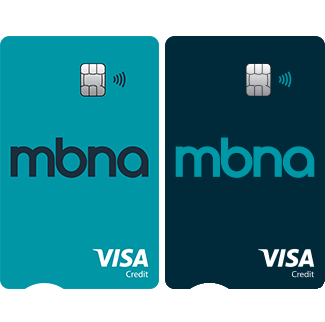
Credit cards
To see which cards you’re eligible to apply for and your estimated credit limit up front, try our eligibility checker, Clever Check. It takes about 5 mins to complete and it won’t affect your credit score.
What are you looking to do today?
Balance transfer
credit cards
This type of card could help if you have balances to repay on cards you hold elsewhere.
- Transfer existing credit card and store card balances to just one card.
- Manage your repayments easier in one place and with only one monthly repayment.
- Get an introductory rate. This could save you interest on the balances you transfer and give you longer to repay.
Transfer fees may apply.
Transfer and purchase
credit cards
If you're thinking of making transfers and purchases, this type of card may be for you.
- Get introductory rates on balance transfers, money transfers and purchases.
- Put your everyday spends in one place and spread the costs of those larger purchases.
- Have the option to transfer some of your available credit limit to your current account at an introductory rate.
Transfer fees may apply.
Purchase credit cards
Whether it’s for everyday essentials or shopping for something bigger, an MBNA purchase credit card can help you pay for things your way.
- Usually comes with a low interest rate on purchases.
- You could earn cashback with MBNA Smart Rewards.
- Section 75 protection on most purchases over £100 but not more than £30,000.
Money transfer
credit cards
If you want to use your credit card to help with current account payments, this card could be for you.
- Transfer money from some of your available credit limit to your UK current account at an introductory interest rate.
- Have more flexibility for paying unexpected bills.
- Make a money transfer to use your debit card or cash where credit cards aren’t accepted.
Transfer fees may apply.
Money transfers must be at least £100 and can only go to your own UK current account.
-
Helping you understand credit cards.
A credit card can help you pay for things your way.
Unlike your debit card, a credit card pays with borrowed money, which then needs to be paid back later.
You’ll be charged for borrowing in two ways:
Interest ... which will be a percentage of the money you borrow on your credit card.
And fees ... such as an annual fee or transfer fees ... or a charge for things like late payments.
A credit card comes with a credit limit – the maximum amount you can borrow with the card based on your circumstances … and your credit history.
You’ll have a minimum monthly repayment you’ll need to make – although you can vary how much you pay back each month above that amount.
Every month, you’ll get a credit card statement showing your balance, the minimum you need to pay and when to pay it by.
If you can pay off your entire balance before the due date, that’s great – you won’t pay any interest at all.
If you pay it back over a longer period, that’s fine too, but you’ll pay some interest … unless you have an interest-free offer.
Generally, the more you pay, the less the interest you’ll pay overall.
So it’s a good idea to pay off as much as possible, whenever you can.
If you already have borrowing, a balance transfer lets you move your balance from one credit card to another with a different provider.
This could mean moving to a card with a lower interest rate, which might reduce your monthly outgoings.
Credit cards also offer protection under Section 75 of the Consumer Credit Act.
This means you could get your money back if you run into a problem with most purchases over £100 up to £30,000.
The key points to remember when choosing a credit card are:
Be aware of interest charges and fees … and the more of your balance you pay off each month, the less interest you’ll pay.
So, think about what you want to use your credit card for and take your time to find the one that’s right for you.
MBNA – choices made simple.
Choosing the right credit card
When you’re looking for a credit card, it’s important you know what you want it for... purchases, transfers, or a card that’ll come in handy for emergencies?
To help you understand credit cards, please watch our short video.
When comparing credit card offers:
- Think about how you’ll use your new credit card, both now and in the future.
- Remember to compare all rates and any transfer fees on promotional offers.
- Consider the risk of taking on too much debt and how you’ll repay any amounts owed.
Ready to compare credit cards you’re eligible for?
To see which cards you’re eligible to apply for and your estimated credit limit up front, try our eligibility checker, Clever Check.
It takes about 5 mins to complete and it won’t affect your credit score.

Frequently asked questions
-
Instead of listing every credit card we offer, we’ll only show you cards you’re eligible to apply for, so you can make an informed choice about which cards will suit your needs.
-
The right credit card for you depends on what you want to use it for, and on your personal circumstances. For example, if you want to combine existing card balances, then a balance transfer credit card might be useful.
We’d suggest reading through everything on this page and on our website, so you understand exactly which credit card is right for you. We also have a handy guide on choosing the right credit card.
-
A credit card can help you manage your finances, but it needs to be the right choice for your needs. Other borrowing options might be more suitable depending on what you need it for.
For example, if you’re looking to build an extension on your home, a credit card might not be the right way to fund it. A loan might be more suitable as you can spread the repayments over an affordable term. However, if you need more flexibility with your monthly repayments, a credit card could be a better option.
Learn more about whether you should choose a loan or a credit card.
-
It only does what’s called a ‘soft credit search’. These can’t be seen by other lenders, which means they can’t be used when making lending decisions.
